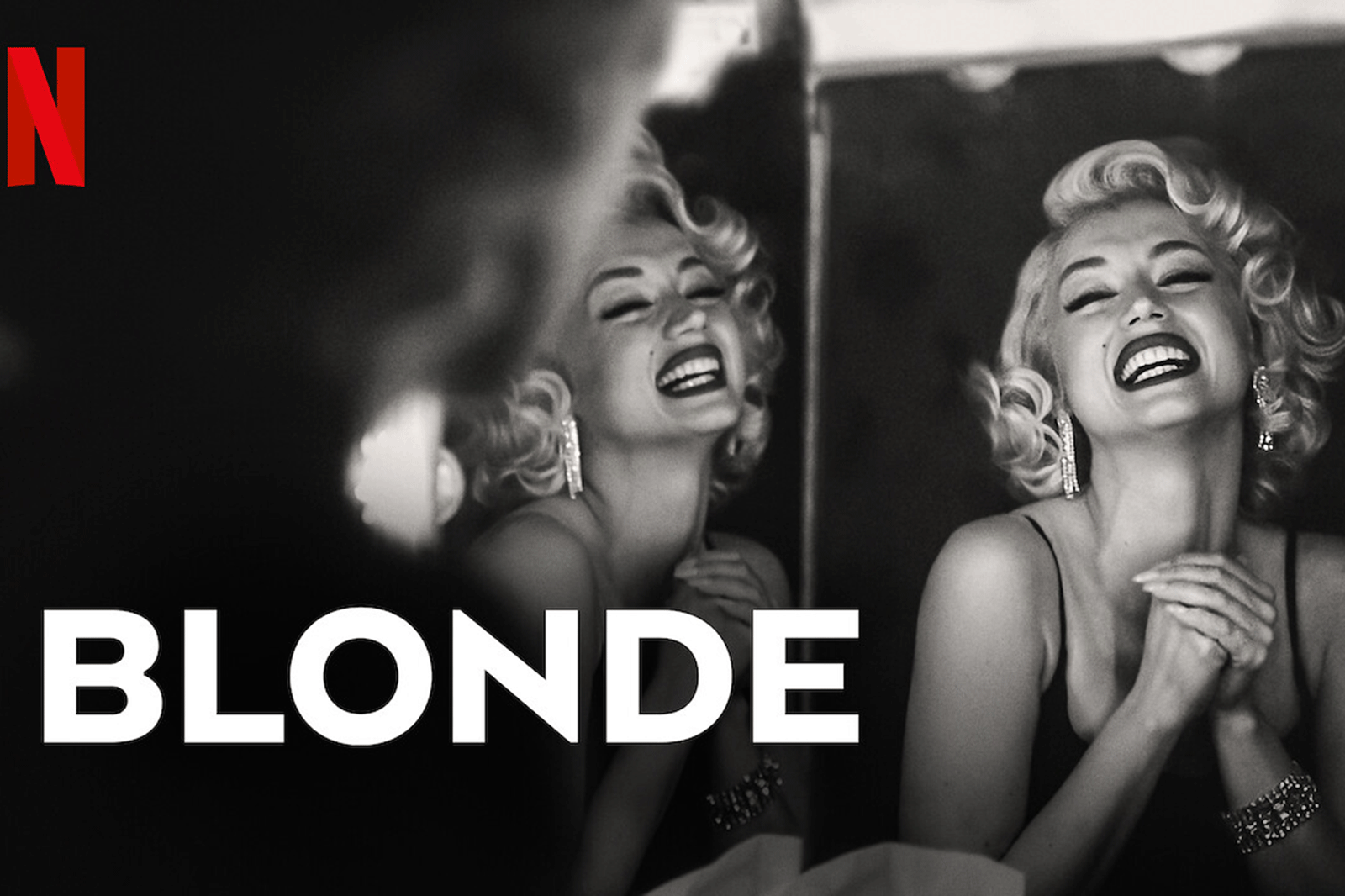Several months ago, I wrote an article about my five most hated movies. I’m going to have to amend that list.
I recently saw “Blonde” on Netflix starring Ana de Armas (“Knives Out”) in an Oscar-nominated performance. No doubt the performance is very good but the film in which it is contained is a monstrosity.
“Blonde” purports to tell the life story of Hollywood actress and sex symbol Marilyn Monroe, from her abusive childhood to her death from a drug overdose in 1962 at the young age of 36. It is based on the book by Joyce Carol Oates, who is also the credited screenwriter. Like most film biographies, it is hard to tell fact from fiction. But there are so many explosive situations and relationships depicted in this film it is hard to imagine that Oates hasn’t already been, or will be, subject to a libel suit, if any or all of them are not at least true-ish. Whether it be the near drowning by her mentally-unhinged mother when a young girl, or her abandonment in an orphanage after her mother is committed to a mental institution, or a threesome relationship with the sons of Charlie Chaplin and Edward G. Robinson which led to an abortion, or a casting couch rape by a Hollywood producer named Mr. Z during an “interview,” or the abusive marriage with Joe DiMaggio, or a sexual dalliance with then President John F. Kennedy, there is no shortage of prurient material in this film.
Certainly, Norma Jean Baker (Monroe’s real name) had a hellish life, but based on some rudimentary research it would seem at least some of this only has a very tenuous relationship to fact. I know that Hollywood biographies often play fast and loose with the truth, but this is ridiculous. Even accepting this, does it hang together as a movie?
Director Andrew Dominic clearly thinks he is making some kind of “Great Cinema,” because rarely have I seen a movie that contains more film school tricks — slow motion, rotating between black and white and color, flashbacks, distorted photography, stop-motion, quick-cut editing, etc. — that serve no purpose other than to pad an already inflated running time (167 minutes). This is one of the most pretentious movies I have ever seen. It does nothing but distract from a tragic tale that needs no fillers or enhancements to be poignant. By the end, instead of heart-struck for Norma Jean, I was simply numb.
Or should I say outraged. For this movie has two things that really got me going. First, there is a through-line in the film that Norma Jean never knew who her father was and that was a central part of her fragile psychology, and that she was receiving periodic anonymous letters from him signed “Tearful Father.” Her desperate need for a father, according to the film, would lead her into dependent relationships, often with older men (Dimaggio, Arthur Miller) who she would then call “Daddy” (cringe). “Tearful Father” is later revealed to be a cruel joke perpetrated by Chaplin and Robinson. Apparently, “Tearful Father” is a dramatic device dreamed up by Oates to bring Norma Jean’s daddy-obsession to light. If so, to associate it as a joke to these two men is character assassination of the worst form.
But even with all this, at this point I was simply severely disliking the film. The scene that put me over the top into active hatred is the depiction of a clearly drugged-out Monroe being roughly handled by Secret Service agents past rooms full of supposed Kennedy aides, into JFK’s bedroom to satisfy him sexually. The camera angle by which their interaction is filmed leaves nothing to the imagination. I was stunned. I never, ever thought I would see such a scene in a mainstream motion picture about a former President of the United States. Whether true or not to depict a former President in such a fashion is abhorrent. Frankly, everyone, including Armas, associated with this garbage should be ashamed, and certainly not rewarded.














